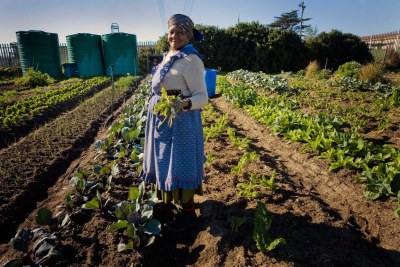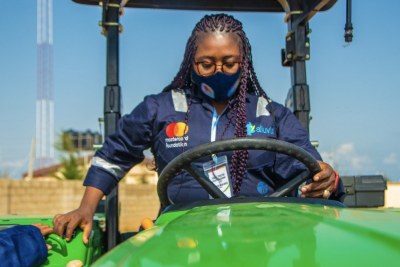-
Africa: Gender Inequalities in Food, Agriculture Cost World U.S.$1 Trillion - FAO
UN News, 13 April 2023
Levelling the playing field for women working in the food and agriculture sectors can bring growth and help feed millions, the UN's Food and Agriculture Organization (FAO) said on… Read more »
'Gender Inequalities in Agriculture Are Costing World Trillions'
Over one-third of the world's working women are employed in agrifood systems, which include the production of food and non-food agricultural products, as well as related activities from food storage, transportation, and processing to distribution. Despite this fact, a new report published by the World Food Agricultural Organisation of the United Nations (FAO) says that gender inequalities such as less access for women to knowledge and resources, and a higher unpaid care burden, account for a 24% gap in productivity between women and men farmers on farms of equal size.
The report points out that closing the gender gap in farm productivity and the wage gap in agricultural employment would increase global gross domestic product by nearly U.S.$1 trillion and reduce the number of food-insecure people by 45 million, at a time of growing global hunger. The study also found that discriminatory social norms reinforce gender barriers to knowledge, resources and social networks are holding women back from making an equal contribution in the agrifood sector.
Documents
-
14 April 2023
The Status of Women in Agrifood Systems
- Author:
- Food and Agriculture Organisation
- Publisher:
- Food and Agriculture Organisation
- Publication Date:
The status of women in agrifood systems report uses extensive new data and analyses to provide a comprehensive picture of women's participation, ... see more »
InFocus
-
Africa has the natural resources and the policies required to tackle poverty and hunger - but these policies are not effectively implemented. Noting the impact of Russia's invasion ... Read more »
-
A new initiative by farming collective Alluvial Agriculture seeks to level the field for female farmers. The company, which provides education and market access for smallholder ... Read more »

A farmer from a women-run vegetable cooperative grows cabbages in Sierra Leone (file photo),



